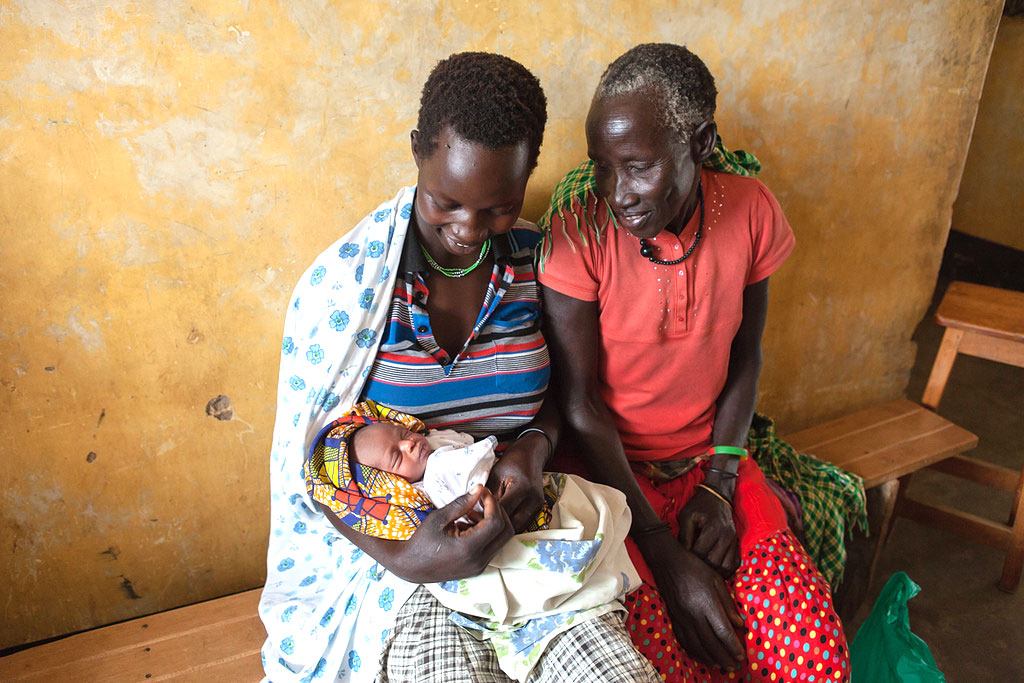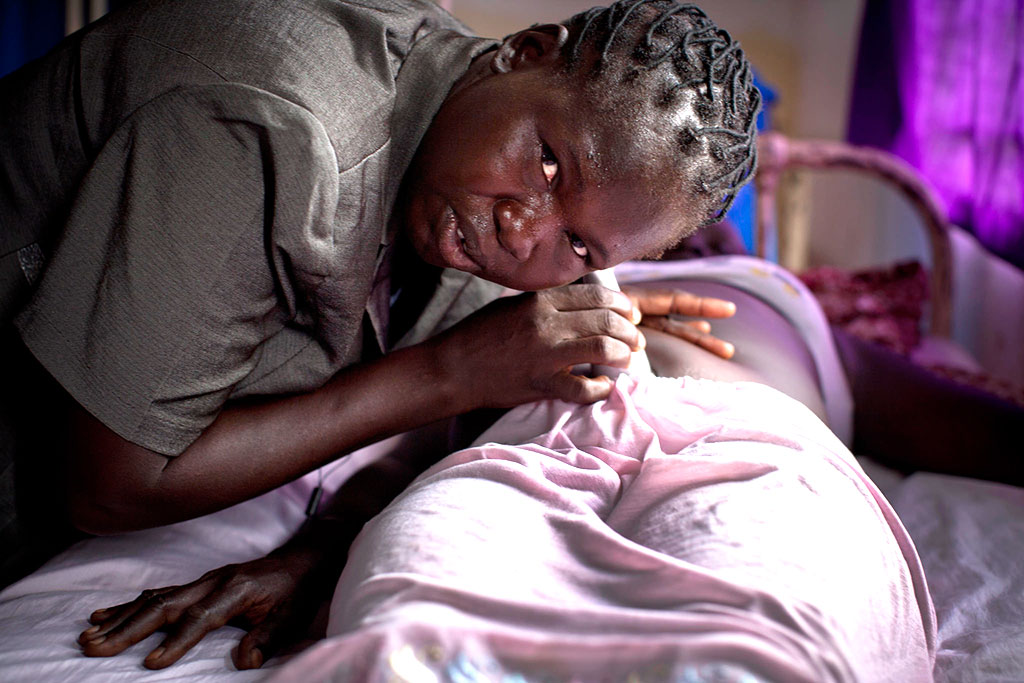From 18-21 October, the first-ever Global Maternal and Newborn Health Conference is being held in Mexico City. Sponsored by the Maternal Health Task Force at the Harvard School of Public Health, USAID’s flagship Maternal and Child Survival Program (MCSP), and Save the Children’s Saving Newborn Lives program—and in coordination and collaboration with a number of global and regional partners—the conference will focus on three themes: integration, quality care, and equity.
Below, MCSP’s Jane Coleman speaks to the theme of integration in the context of the Program’s efforts to prevent and treat malaria in pregnancy.
This blog also appeared on the Crowd360 website.
In malaria endemic areas, 125 million women become pregnant each year. Malaria in pregnancy leads to devastating consequences for both mothers and newborns, including higher levels of anemia, low birth weight and infant death.
This is especially true in Sub-Saharan Africa, where the burden of malaria is highest. Every year in this region, malaria infection during pregnancy contributes to between 75,000 and 200,000 infant deaths.
Yet these deaths are preventable.
Thankfully, IPTp-SP – intermittent preventive treatment during pregnancy with sulfadoxine-pyrimethamine – is a simple and cost effective intervention. By taking three doses of this antimalarial in the second trimester and at every scheduled visit to an antenatal clinic thereafter, IPTp-SP saves lives.
We join the World Health Organization (WHO) in recommending IPTp-SP as one of three key interventions — alongside the provision of insecticide-treated nets and effective case management — for the control of malaria in pregnancy in areas of stable disease transmission.
However, in 2013, an estimated 15 million of the 35 million pregnant women in sub-Saharan Africa did not receive a single dose of preventive treatment during their pregnancy.
Now is the time to act.
This year’s Global Call to Action to increase coverage of preventive treatment for malaria during pregnancy throughout sub-Saharan Africa reminds us again of those most vulnerable to malaria: pregnant women and young children. The Call asks national malaria programs, donors, researchers, pharmaceutical companies and civil society to reinforce national IPTp policy adoption, contribute to the Sustainable Development Goals, and implement the 2012 WHO IPTp guidelines.
USAID’s Maternal and Child Survival Program (MCSP) is working closely with global and country level stakeholders to support WHO’s three-pronged approach. This means adapting our efforts to local requirements to achieve a 100% increase in IPTp-SP coverage from current levels by 2020, and national coverage of at least 90% by 2030.

Specifically, MCSP is engaging communities in Burkina Faso and Kenya to promote and deliver services. We are building the capacity of health workers and supervisors in Ghana and Tanzania, and improving the quality of care in Mozambique. And in all of the 20+ countries where we work, MCSP is strengthening monitoring and evaluation as an integrated component of capacity development.
But the key to defeating malaria in pregnancy will be integration.
For us to be successful, integrated approaches that promote comprehensive prevention and control for pregnant women—as well as efforts to strengthen the health system—need to be implemented and taken to scale at country level.
MCSP’s strategy is woman-centered, recognizing that women are the primary care takers of children under five and are themselves at higher risk during pregnancy. Moreover, integrating reproductive, maternal, newborn and child health services with the antenatal care platform presents a unique opportunity to reach the majority of pregnant women.

We are mindful that true integration involves a number of players and efforts—from the healthcare workers who make IPTp-SP accessible to pregnant women, to the tutors and preceptors who invest in pre-service education and on-the-job training that incorporates malaria in pregnancy and IPTp-SP information.
MCSP folds nutritional efforts into our malaria work, too, using an integrated package of interventions to address the major causes of anemia: nutritional deficiencies and soil-transmitted helminth infections as well as parasitic infections due to malaria. And to strike the right balance across all activities, we must ensure greater integration between public health programs, going beyond reproductive health and malaria to include TB and HIV.
It is clear why protecting pregnant women
from malaria is particularly urgent.
Dr. Pedro Alonso, Director of the WHO Global Malaria Program in Geneva, may have said it best:
“Intermittent preventive therapy for pregnancy is a lifesaving tool. It needs to be expanded substantially in all countries where it is a recommended intervention.”
During this week’s conference, I encourage you to add your voice to the global conversation, and continue to advocate for malaria in pregnancy programming. Use the official conference hashtag – #GlobalMNH – and “virtually” attend via conference webcasts. You’ll be joining technical implementers, policymakers, researchers and practitioners from more than 50 countries, all strategizing the best ways to reach every mother and newborn with high-quality care.
For our part, MCSP is working every day, around the globe, to ensure that our investments in malaria focus on building on our successes and learning from our challenges to propel our programs to the next level.

